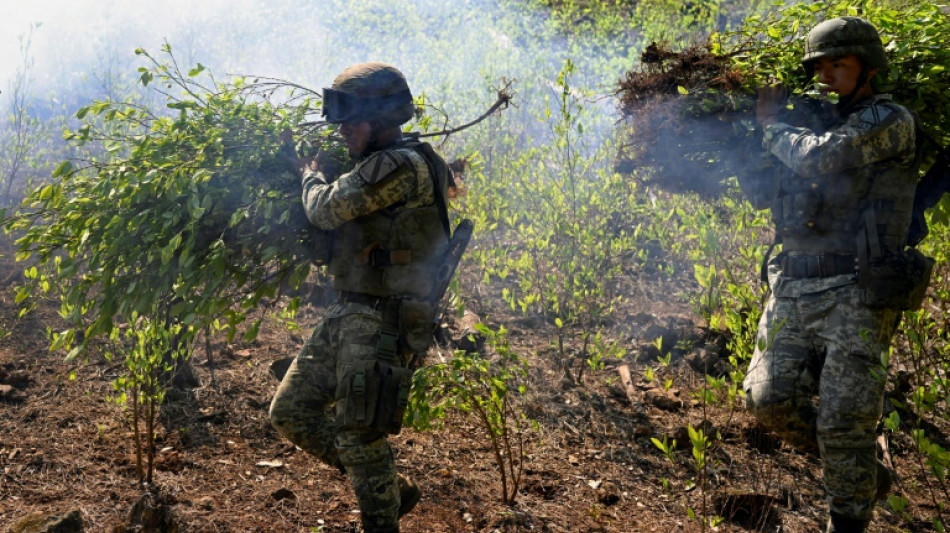
-
 Rangers hire two-time NHL champion Sullivan as coach
Rangers hire two-time NHL champion Sullivan as coach
-
Haaland on bench for Man City as striker returns ahead of schedule

-
 US designates two Haitian gangs as terror groups
US designates two Haitian gangs as terror groups
-
Lower profits at US oil giants amid fall in crude prices

-
 NBA icon Popovich stepping down as Spurs coach after 29 seasons
NBA icon Popovich stepping down as Spurs coach after 29 seasons
-
'Devastated' Prince Harry says no return to UK but seeks royal reconciliation

-
 Grande scratched from Kentucky Derby
Grande scratched from Kentucky Derby
-
Carney vows to transform Canada economy to withstand Trump

-
 Prince Harry says he would 'love' to reconcile with family
Prince Harry says he would 'love' to reconcile with family
-
Major offshore quake causes tsunami scare in Chile, Argentina
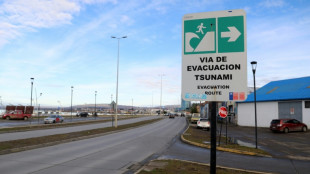
-
 GM cuts shift at Canada plant over 'evolving trade environment'
GM cuts shift at Canada plant over 'evolving trade environment'
-
F1 extends deal to keep Miami GP until 2041

-
 Popovich mixed toughness and spirit to make NBA history
Popovich mixed toughness and spirit to make NBA history
-
US asks judge to break up Google's ad tech business

-
 Trump eyes huge 'woke' cuts in budget blueprint
Trump eyes huge 'woke' cuts in budget blueprint
-
Ruud downs Cerundolo to book spot in Madrid Open final

-
 Gregg Popovich stepping down as San Antonio Spurs coach after 29 seasons: team
Gregg Popovich stepping down as San Antonio Spurs coach after 29 seasons: team
-
Guardiola to take break from football when he leaves Man City

-
 Vine escapes to Tour of Romandie 3rd stage win as Baudin keeps lead
Vine escapes to Tour of Romandie 3rd stage win as Baudin keeps lead
-
Olympic 100m medalist Kerley arrested, out of Miami Grand Slam meet

-
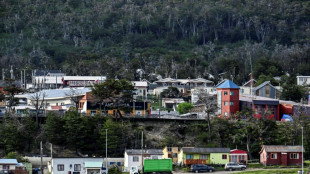 Chile, Argentina order evacuations over post-quake tsunami threat
Chile, Argentina order evacuations over post-quake tsunami threat
-
Arteta 'pain' as Arsenal fall short in Premier League title race

-
 Hard-right romps across UK local elections slapping down main parties
Hard-right romps across UK local elections slapping down main parties
-
US ends duty-free shipping loophole for low-cost goods from China

-
 Renewables sceptic Peter Dutton aims for Australian PM's job
Renewables sceptic Peter Dutton aims for Australian PM's job
-
Australians vote in election swayed by inflation, Trump

-
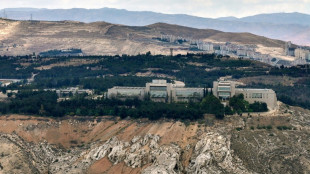 Syria slams Israeli Damascus strike as 'dangerous escalation'
Syria slams Israeli Damascus strike as 'dangerous escalation'
-
Grand Theft Auto VI release postponed to May 2026

-
 Lawyers probe 'dire' conditions for Meta content moderators in Ghana
Lawyers probe 'dire' conditions for Meta content moderators in Ghana
-
Maresca confident Chelsea can close gap to Liverpool

-
 Watchdog accuses papal contenders of ignoring sex abuse
Watchdog accuses papal contenders of ignoring sex abuse
-
Berlin culture official quits after funding cut backlash

-
 US hiring better than expected despite Trump uncertainty
US hiring better than expected despite Trump uncertainty
-
EU fine: TikTok's latest setback

-
 Stocks gain on US jobs data, tariff talks hopes
Stocks gain on US jobs data, tariff talks hopes
-
Barca's Ter Stegen to return from long lay-off for Valladolid trip

-
 US hiring slows less than expected, unemployment unchanged
US hiring slows less than expected, unemployment unchanged
-
Man Utd must 'take risk' and rotate players as they target European glory: Amorim

-
 Vatican chimney installed ahead of papal conclave
Vatican chimney installed ahead of papal conclave
-
Toulouse's Ramos to miss Champions Cup semi with injury

-
 Grand Theft Auto VI release postponed to May 2026: publisher
Grand Theft Auto VI release postponed to May 2026: publisher
-
S.African mother found guilty of selling young daughter

-
 EU wins post-Brexit fishing row with Britain
EU wins post-Brexit fishing row with Britain
-
Activists say drones attacked aid boat bound for Gaza

-
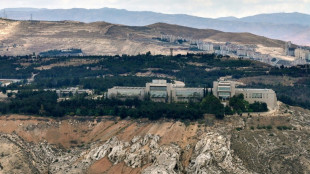 Israel says struck near Syria presidential palace amid Druze clashes
Israel says struck near Syria presidential palace amid Druze clashes
-
Eurozone inflation holds above expectations in April
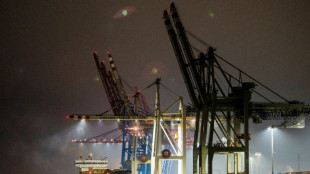
-
 Orgies, murder and intrigue, the demons of the Holy See
Orgies, murder and intrigue, the demons of the Holy See
-
'Deadly blockade' leaves Gaza aid work on verge of collapse: UN, Red Cross

-
 Pakistani Kashmir orders stockpiling of food as India tensions flare
Pakistani Kashmir orders stockpiling of food as India tensions flare
-
Stock markets gain as China mulls US tariff talks


Coca crops take root in Mexico as opium demand wanes
An army helicopter flies over verdant mountains in southern Mexico, the scene of unusual coca crop discoveries that suggest drug cartels are adapting to shifts in the multimillion-dollar narcotics trade.
For years, poppies -- the raw material for heroin -- and marijuana have provided a livelihood for thousands of small farmers in the impoverished state of Guerrero.
But in recent years the growing US addiction crisis surrounding the potent synthetic drug fentanyl has caused opium demand and prices to fall.
The result is that Mexican traffickers are now experimenting with growing coca leaves, whose production has historically been dominated by Bolivia, Peru and Colombia.
"It's an activity that hadn't been detected here before," said Colonel Carlos Javier Perez, who heads the unit in charge of destroying coca in Guerrero.
"In a month and a half, we've found 27 plantations," he told AFP.
Mexico's coca fields are in their infancy, with a surface area of around 360,000 square meters (3.9 million square feet) eradicated in the past four years -- a drop in the ocean compared with Colombia.
"Organized crime groups are trying to diversify their activities and experiment with coca planting," Perez said, as soldiers uprooted the bushes by hand and burned them in the town of Atoyac de Alvarez.
Cocaine is hugely profitable: In Europe, for example, a kilo can sell for around $40,000.
It is a sum most farmers could only dream of in Guerrero, one of Mexico's poorest states, which has endured years of violence linked to turf wars between drug cartels.
- 'No coincidence' -
Mexican cartels have come to control almost the entire cocaine trafficking chain in Colombia.
Now coca crops are also flourishing in Honduras and Guatemala, once just transit points for the drug from South America.
In the Mexican case, "it is linked to the production of fentanyl," said Libertad Arguello, an expert at the Colegio de Mexico institute of higher education.
"It's no coincidence that coca leaves began to be cultivated."
The Mexican government reported the first coca plantation discoveries in February 2021. President Andres Manuel Lopez Obrador said that criminal groups were experimenting with the crop.
The one-hectare (2.5-acre) field found in Guerrero had a small irrigation system.
A few meters (yards) away, the soldiers also found an improvised laboratory, tools, chemicals, gasoline and clothing left behind by those in charge.
To reach the crops, the military traveled nearly an hour in off-road vehicles and on foot through dense vegetation, according to AFP reporters who accompanied them.
The soldiers must explore the area on foot because it is almost impossible to spot the coca plants from the air, Perez said.
In the laboratory where the coca paste was produced, a sleeping bag, blankets and a cap were seen abandoned by workers, who according to the military fled when they saw the troops.
The paste, obtained by mixing chopped leaves with lime, cement, gasoline, and ammonium sulfate, is usually taken elsewhere to be turned into cocaine, Perez said.
According to Insight Crime, a non-profit investigative organization, Mexican criminal groups could be experimenting with new growing techniques to adapt the plants to higher altitudes than in Colombia and Peru.
"Despite the increased discoveries, Mexico's coca cultivation remains far from scalable. And there is no indication that the country will soon become a significant player in coca production," it said in a report.
"But while coca cultivation levels remain low, the incremental increase and Guerrero's history of illicit crop cultivation could eventually lead to trouble," it added.
O.Norris--AMWN